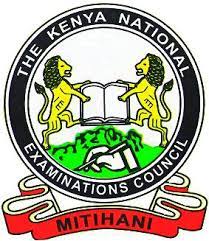
CHAPTER EIGHT
Reprographic services
1 Photocopying
Is a process of obtaining a copy of a document directly from the original with photographic details
Is only used when few copies are required or when on exact photographic reproduction is necessary
Advantages
- Exact copies without losses of only detail are obtained
- When only a few copies are required its the cheapest form of duplicating
- Color copies can be obtained in some machines
- Large sized documents can be reduced by some machines
- It can be operated by a junior as compared with typing which requires a skilled typist
- Quicker than duplicating or printing as no need for the preparation of the master
Disadvantages
- Too expensive for large number of copies
- Photocopies tend to fade after some time
- Some machines don’t photocopy colors
2 Duplicating
This is the process whereby a master copy is prepared from which are obtained a large number of other copies
There are two basic methods of duplicating documents;
- stencil
- spirit duplicating
- Stencil duplicating
This process involves the use of a thin fibrous sheet called stencil which is covered with a chemical coating through which ink cannot pass .They are not easy to write on but straight forward to type
Advantages
- If more copies are required then this method is quite cheap
- The errors can be corrected by using the fluid
- The copies obtained are more clear and can be used permanently
- The copies can be reproduced by using electronic stencil
- Stencils can be used several times if stored properly
Disadvantages
- This method is expensive if only few copies are required
- Its not suitable for color production
- More time is required to prepare a stencil than photocopying
- Its not suitable for attractive printing material like sales promotion literature because the paper used isn’t of high quality
- Spirit duplicating
In this process the master copy consists of a sheet of art paper that has a special carbon on its reverse side. This method of duplicating involves two parts, the preparation of the master and the production of copies from this master
Advantages
- Preparation a master is easy and quick
- Color can be duplicated simultaneously
- Its suitable for producing hard within work for diagrams, maps, charts etc.
Disadvantages
- Difficult to correct mistakes
- Quite expensive can give only 200-300 copies from each master
- The image becomes weaker as the carbon deposit is used
- The quality of work reproduced resemble carbon copies unlike stencil duplicating
3 Printing
This is a special type of duplicating used in most large offices where thousands of copies eg 50,000 are required and their high quality printing is important
Its master copy is a metal plate or paper plate which is typed using a special type writer
Advantages
- The quality of reproduction is best of all processes
- It’s a very economical if large quantities are needed
- It’s speedy because up to 5,000 copies an hour can be produced
- Any paper can be used
- Plates can be stored and re used again
- Different color printing and typefaces or sizes can be used
Disadvantages
- It’s expensive if only few copies are required
- It needs specialized and trained operations
- Separate runs are required for different colors
- Additional office space required for duplicating and stores for materials
What are factors to be considered when deciding on the appropriate duplicating process
- Number of copies required
- Frequency of demand i.e. how often the machine will be used
- Number of colors required
- How urgently are copies needed
- Who would receive the document, this would decide whether type written or printed. Type set appearance is preferred
